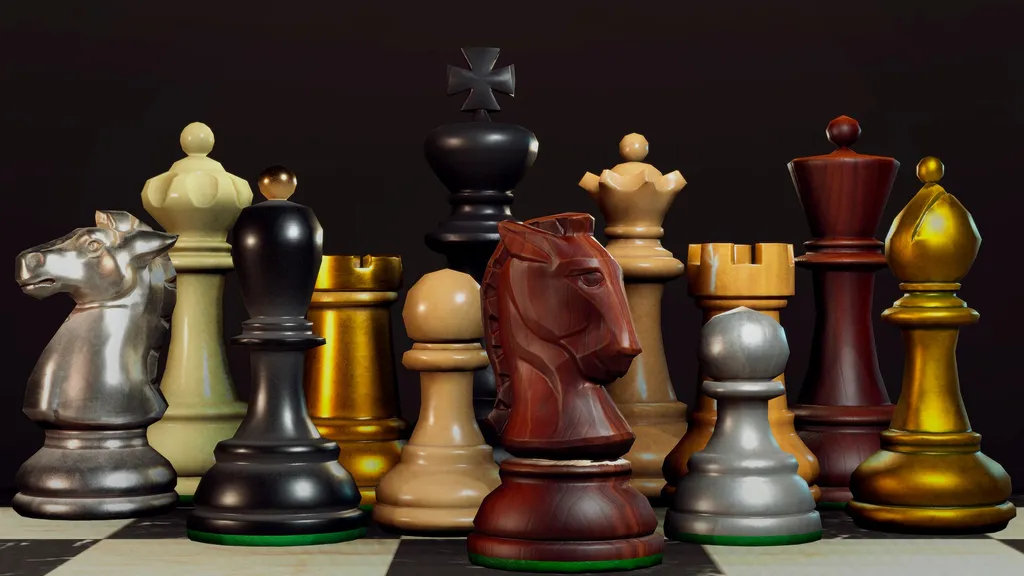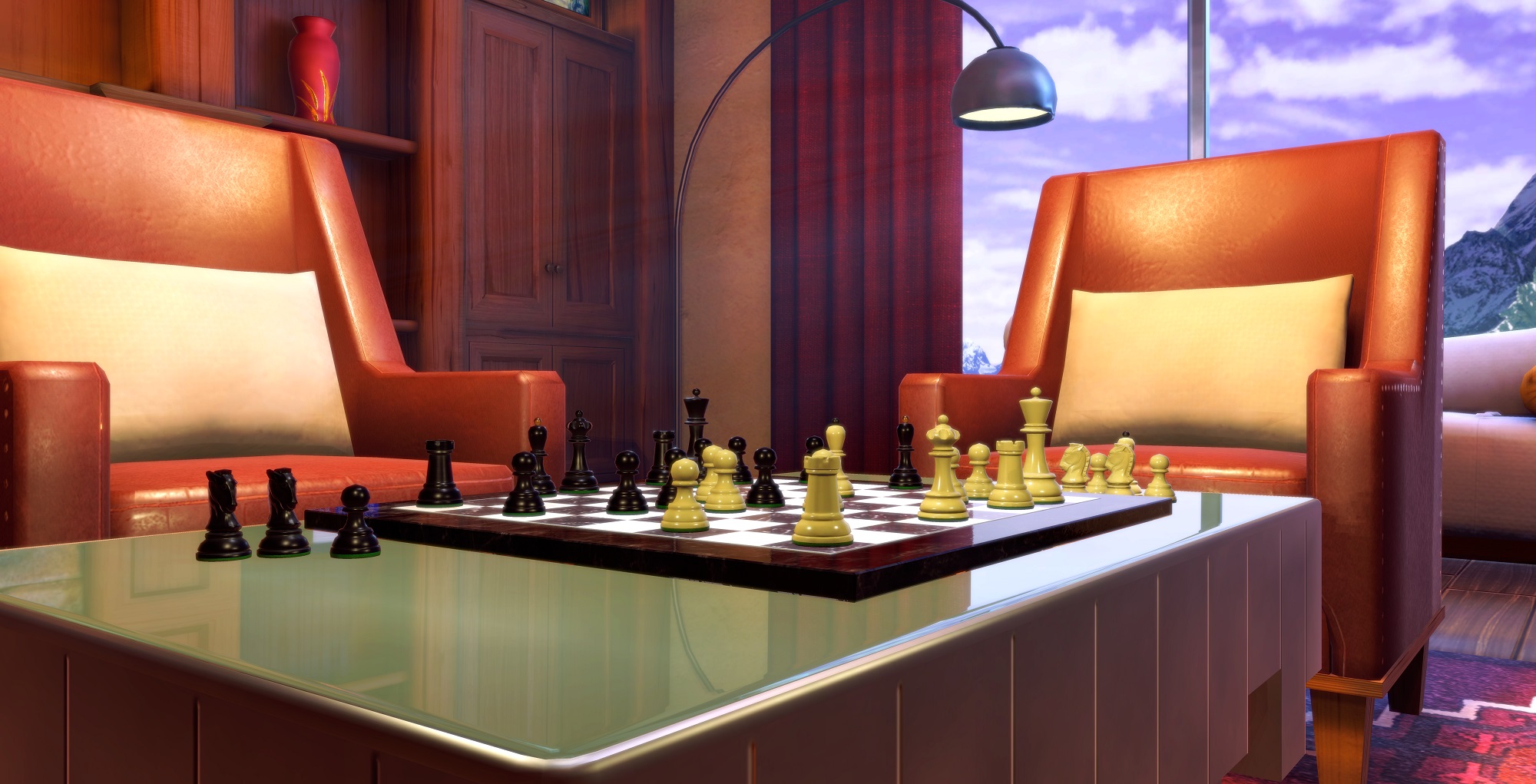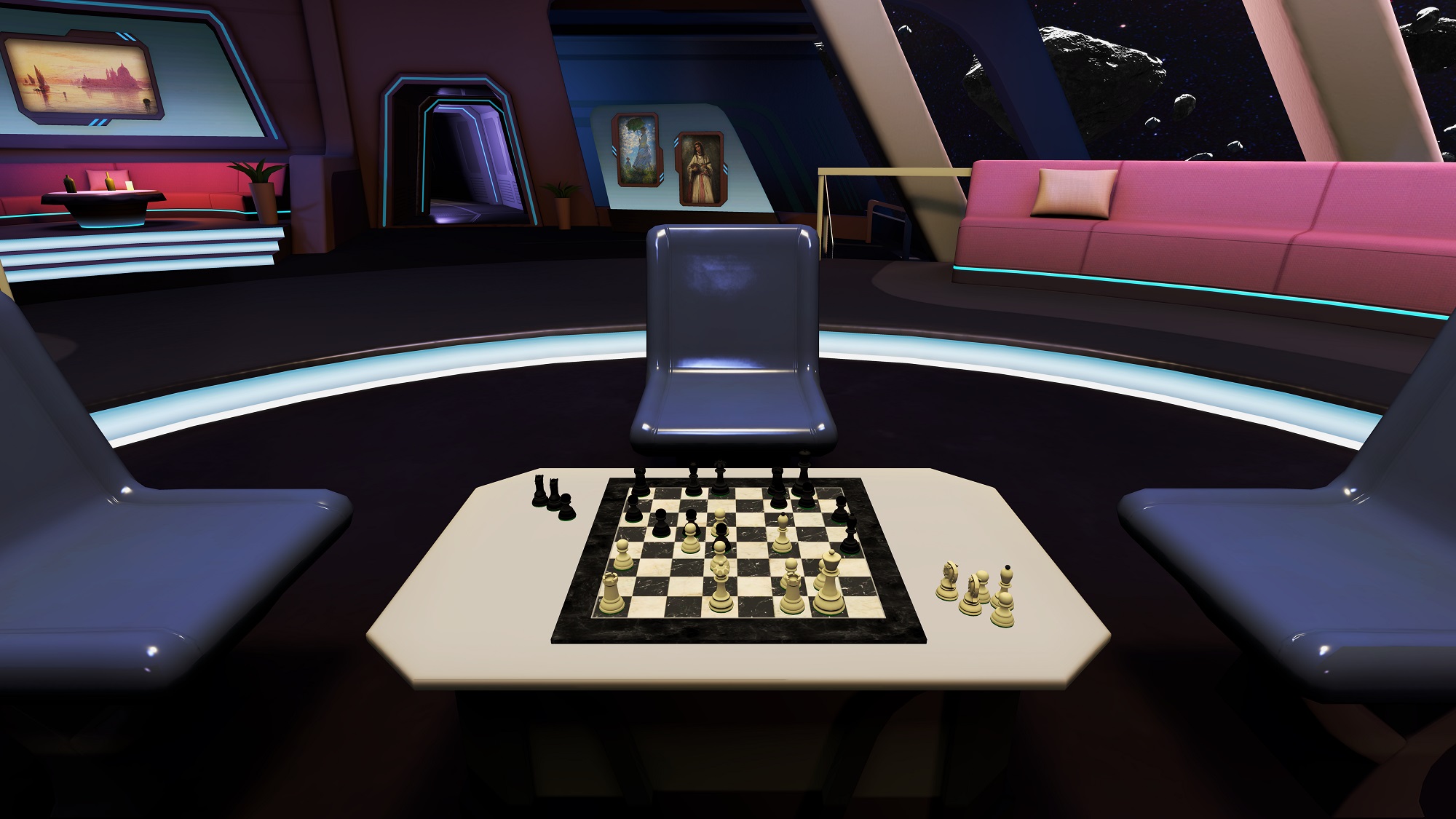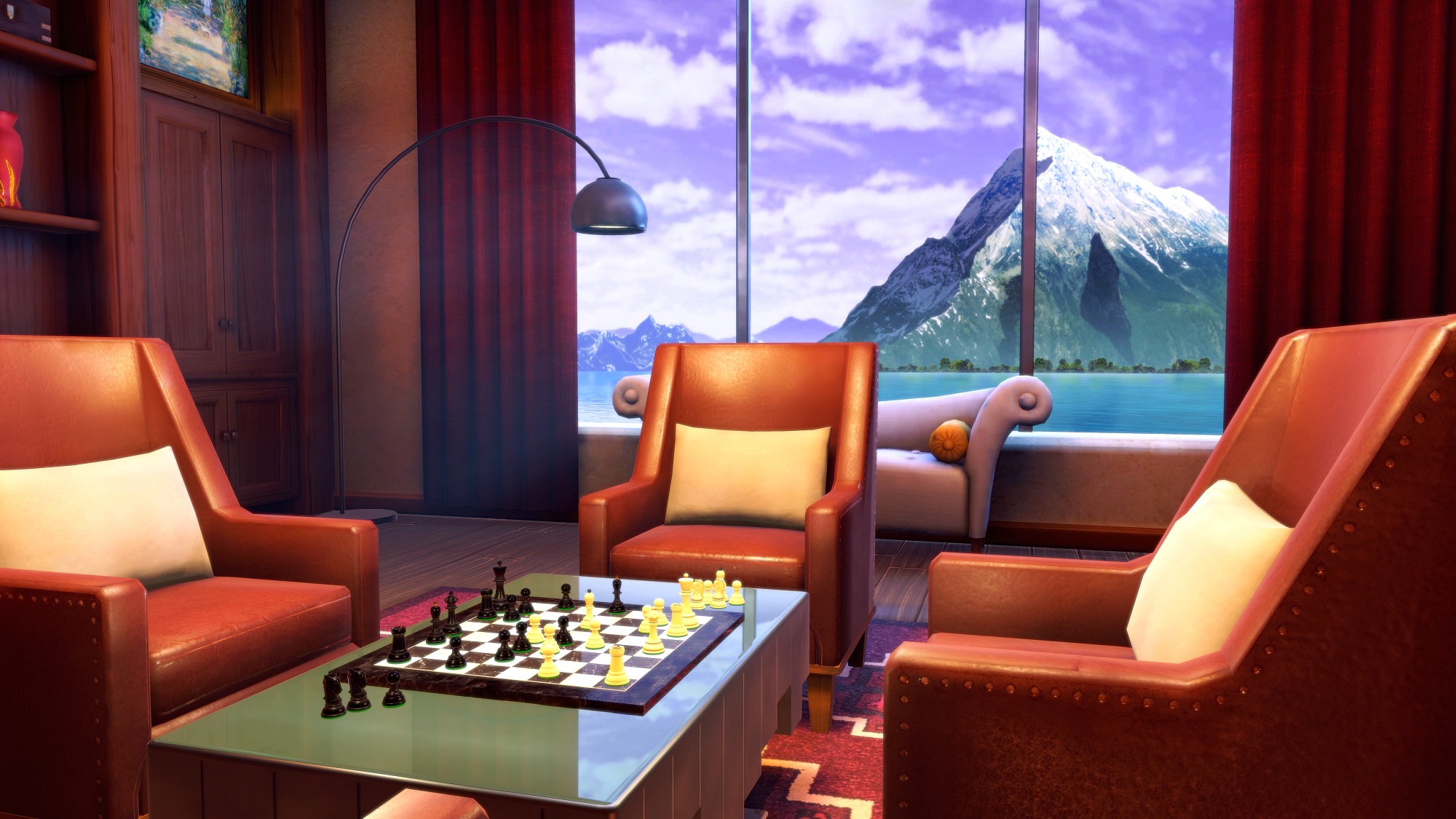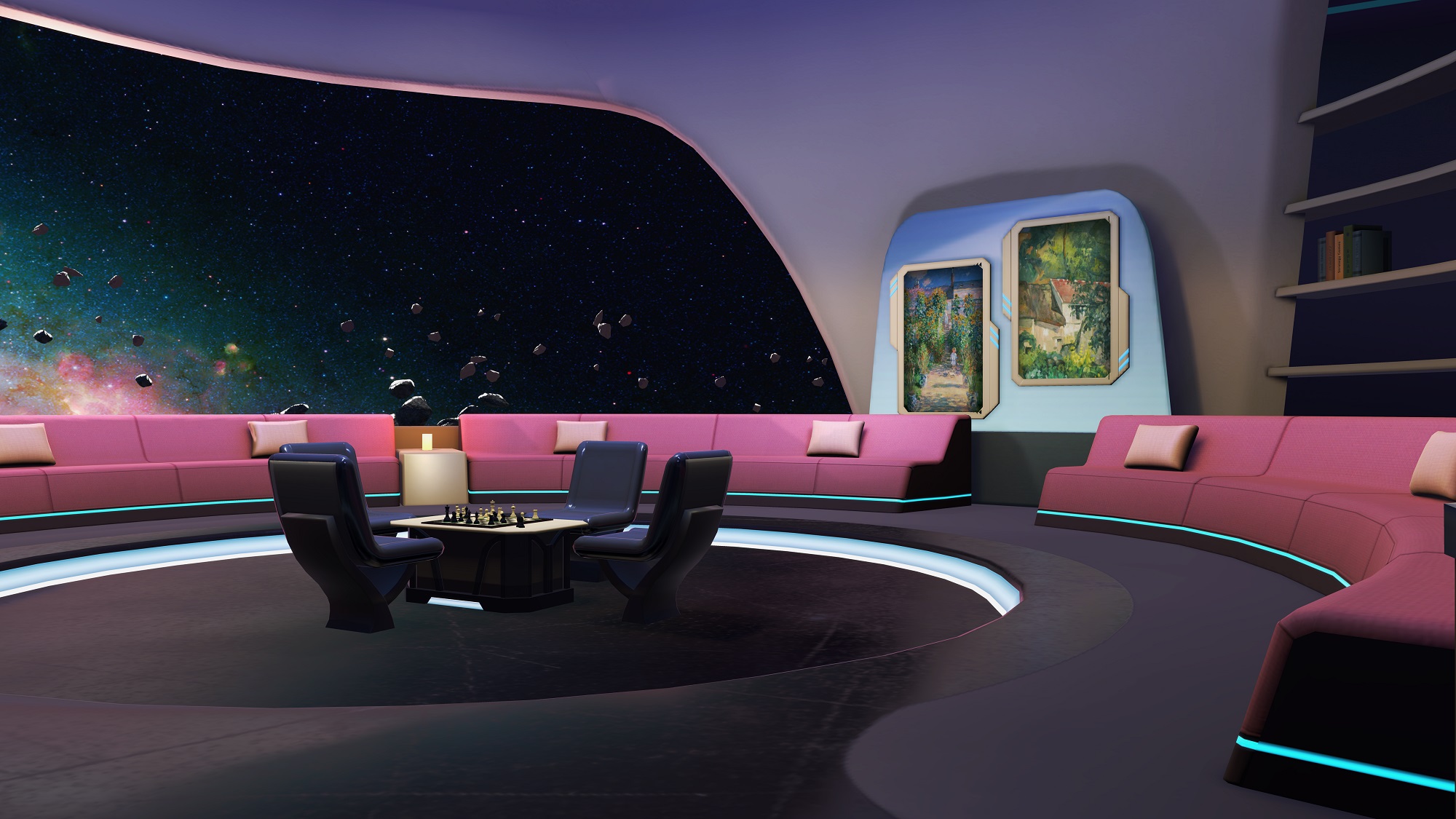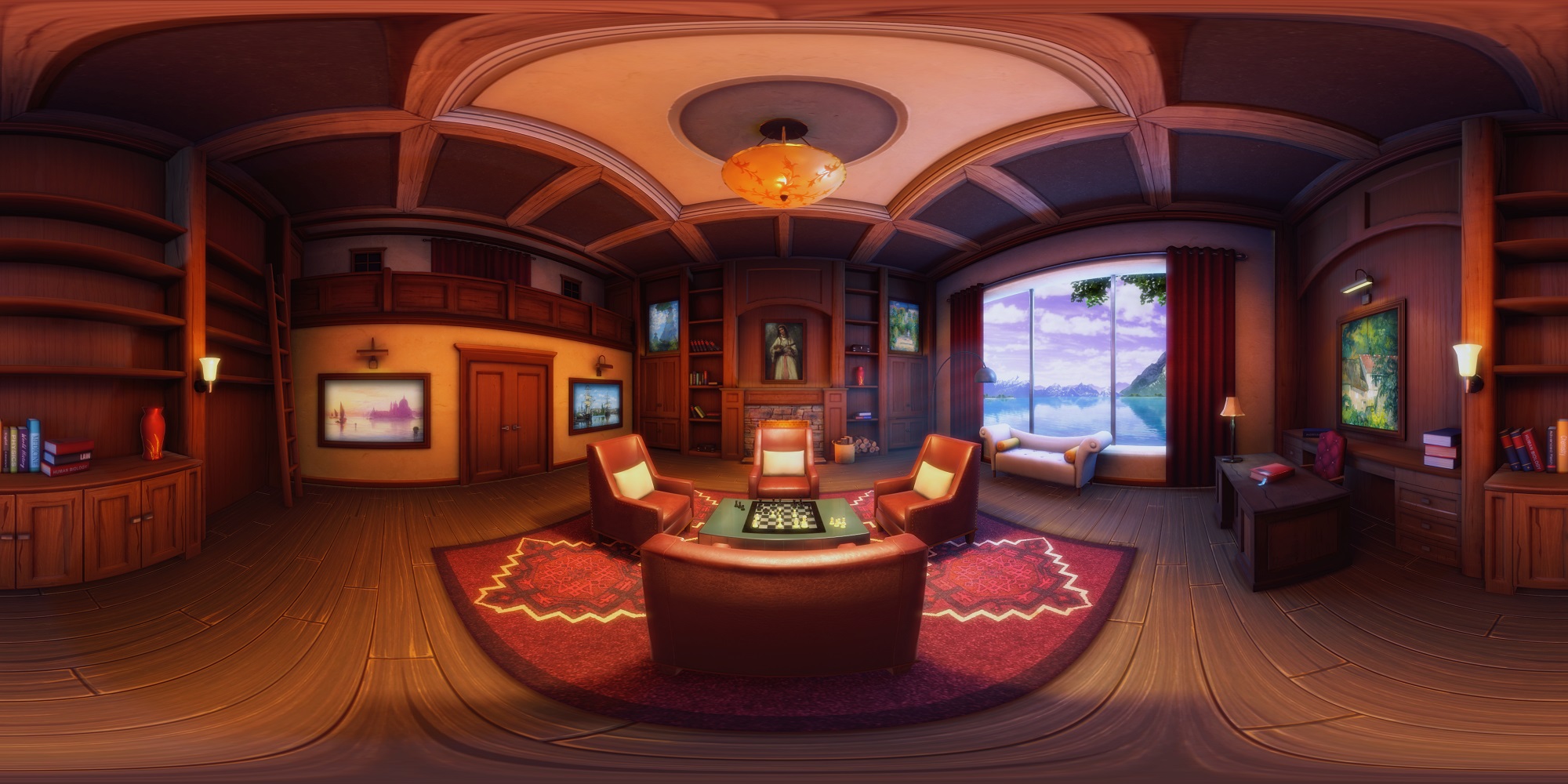At some point during my hands-on multiplayer demo of Magic Table Chess, the first VR release from newly-formed development studio Experiment 7, I completely forgot I was wearing a VR headset. The cutesy avatar across from me was no longer a floating head, it was my opponent. The voices pouring in from the Skype call I had running in the background weren’t coming from across the internet, but were instead just voices in the room around us. I wasn’t moving pieces using gaze-based gestures, I was actively playing a game of chess.
That’s the power of accurate, believable, and immersive recreations of everyday things that VR is capable of producing. The picturesque landscape and water out the window to my right wasn’t real, but it felt like the perfect setting to kick back and enjoy a round of one of the oldest and most classic strategic board games of all-time. Luckily, my utter and complete lack of chess-playing skill didn’t matter; I still had a good time since my opponent was far from a pro himself.
Prior to my demo, I also had the chance to chat with a variety of members of the Experiment 7 team: Geoffrey Zatkin, Co-Founder and Creative Director; Coray Seifert, Director of Production; and Demetri Detsaridis, Co-Founder and Managing Director.
“We have a AAA backed team working on a game, then we will go work on our next game, etc.,” said Zatkin. “This is a series of polished complete games. Our long term goal is to get this on every piece of VR hardware.”
That AAA team has experience dating back all the way to the original EverQuest and most recently at studios like Zynga. For now though, their focus is the Oculus Rift and Samsung Gear VR. The demo I played was on a CV1 Oculus Rift and consisted of simple gaze-based controls, but motion controls like Touch will be supported eventually. All I had to do was look at a piece to select it and then look at a space to move it there. It required a basic understanding of the game (such as knowing which pieces could do what) but was otherwise just as authentic as you’d ever want. Visually, it was a treat to behold with a cozy lobby full of ornate architecture and welcoming decorations.
“The sensation of playing a tabletop game, with cards in your hand or pieces on a table in front of you, that paradigm is something that we can actually do in VR that is instantly comfortable,” said Detsaridis. “It’s easy for people to understand even if they haven’t been hardcore gamers.”
The long-term version for Magic Table as a platform is to have a multitude of games built into the system that can be accessed and enjoyed from a sort of core hub. Environments will carry over between the games and you can move from playing Chess to playing whatever game they release next — maybe Checkers? Poker? Or something even bigger, like actual Dungeons & Dragons or Magic: The Gathering? I obviously asked them to please work on that integration soon to appease my own interests.
“We want to make full and complete games, not tinkerable experiences,” alludes Zatkin. “We are going after big brands to do really well polished implementation of their products.”
When I originally reported on the founding of Experiment 7 and the initial announcement of Magic Table Chess, the value proposition wasn’t clear to me. With the likes of Tabletop Simulator already on the market, it felt like the studio was simply treading water in a pool that was already crowded. Why would someone shell out the cash for a new, more limited game, in the face of an established IP?
“Sometimes you want to play something that lets you mod it or break it or tweak it,” explains Seifart. “Sometimes you want to play a platformer like LittleBigPlanet, but other times you want to play a pre-made and polished game like Mario instead.”
The team goes on to elaborate that there is plenty of room in the market for both types of tabletop, board game-style VR applications.
“Table Top Simulator is much more of a simulation style experience, which what we are doing is more like a traditional game with a ruleset baked in, tutorials, AI opponents, it’s not just you playing around with the models, but we focus on the entire experience holistically,” explains Detsaridis. “We’ve all tried Table Top Simulator, there is not a digital board game iteration that we haven’t tried. It’s just a matter of how you like to play.”
Based on my short time with the multiplayer version of Magic Table Chess, the polish is there and I’m excited to see what they do next. The power and polish of their platform could become a go-to destination for board game enthusiasts, especially considering it’s the sole market segment the studio was founded to focus on.
Like never before, VR introduces the ability to sit across the table from anyone no matter where they are in the world and share a space together. Instead of staring at a screen waiting for them to move, you can see where they’re looking and hear their voice express anxiety and excitement. It’s so much more than just playing off of a standard flat monitor.
Magic Table Chess is currently only available on Oculus Home as a free Single Player Preview, but will be launching with full multiplayer support soon. Both Oculus Rift and Samsung Gear VR are intended platforms. You can find out more about the game on the official website.

